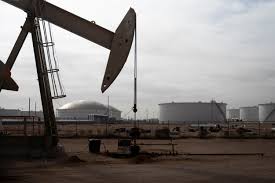Oil prices inched higher on Tuesday, driven by renewed supply concerns after Iran signaled it would reject a U.S. nuclear deal proposal that could ease sanctions and unlock more crude exports. A softer U.S. dollar also lent support to the commodity.
As of 0437 GMT, Brent crude futures were up 21 cents, or 0.32%, trading at $64.84 per barrel. U.S. West Texas Intermediate (WTI) crude rose 27 cents, or 0.43%, to $62.79 per barrel, extending earlier gains of nearly 1%.
The market rally, which began on Monday, has been buoyed by rising geopolitical risks and a modest output hike from the Organization of the Petroleum Exporting Countries and its allies (OPEC+). The group agreed to raise output in July by 411,000 barrels per day—consistent with the previous two months but lower than some market participants had anticipated.
Analysts at ING noted that the momentum from Monday’s surge continued into Tuesday’s early trading. “The strength continued into early morning trading today,” they said in a note, pointing to the limited supply increase and geopolitical uncertainty as key drivers.
The geopolitical tensions surrounding Iran, a major oil producer, have amplified market fears of constrained global supply. Without a renewed nuclear deal, Iranian crude is unlikely to return to global markets in significant volumes soon.
Meanwhile, a weakening dollar made oil more attractive to holders of other currencies, further supporting price gains.















